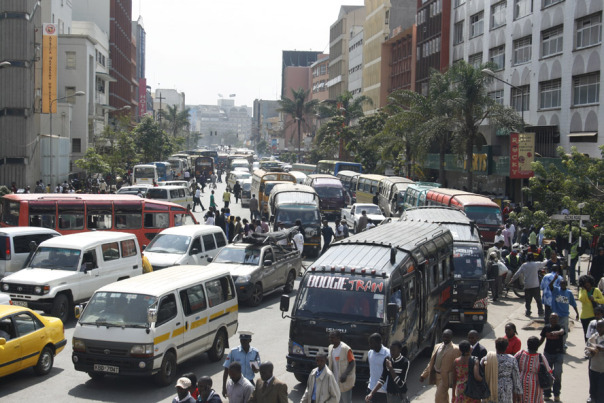Tag: Kenya Revenue Authority (KRA)
Matatus Sign To Safaricom’s M-Pesa
Safaricom has moved to lock-in public transport vehicles to its M-Pesa mobile phone payments service ahead of the government’s July deadline for a ban...
Thousands of drivers to lose there Driving Licences
Tens of thousands of Kenyan drivers are set to lose their driving licences once the Government effects the mandatory re-testing starting next year. The...
[NEWS] Car importers seek waiver on charges
UGANDA vehicle importers have petitioned the Kenya government to give them a 100% waiver on demurrage charges for vehicles that have been held at...
KRA could impound more than 1000 cars over unpaid taxes
The Kenya Revenue Authority (KRA) told The Nation that some vehicles bought between 2004 and 2005 were sneaked past the tax system owing to a technical hitch during the transition to the current Simba system.
Impounded Hummer.
Police have detained footballer McDonald Mariga’s Hummer vehicle for bearing personalised number plate.
Tax in Car Industry
If motor vehicles were tax free, what would happen to the price of the various options?
KRA to crush 430 old cars at freight centres
The Kenya Revenue Authority plans to destroy 437 overage cars at various container freight stations in Mombasa.
Relief for transporters as border is cleared
The congestion of lorries at the Malaba border point has been eased following improved services at the clearing point.
A senior Kenya revenue Authority (KRA)...
KRA says system is tamper-proof
Kenya Revenue Authority (KRA) has denied claims that revenue officers at the port of Mombasa deliberately shut down the computerised cargo clearing systems to engage in corrupt dealings.
32 cars ‘missing from inspection firm’s database’
Inspection certificates for 32 cars were not in the database of a firm contracted to inspect imported vehicles on behalf of the bureau of standards
State agencies on the spot over seized vehicles
KRA and Kebs last year started inspecting cars aboard ships to intercept and sent back those that do not meet local standards before they were offloaded.



![[NEWS] Car importers seek waiver on charges](../../../blog/wp-content/uploads/2013/11/crushed-vehicles-e1384424672317.jpg)




![Top 20 Used Cars to Avoid Buying in Kenya – [PHOTOS]](../../../blog/wp-content/uploads/2013/11/top-used-unreliable-cars-to-avoid2-100x70.jpg)

